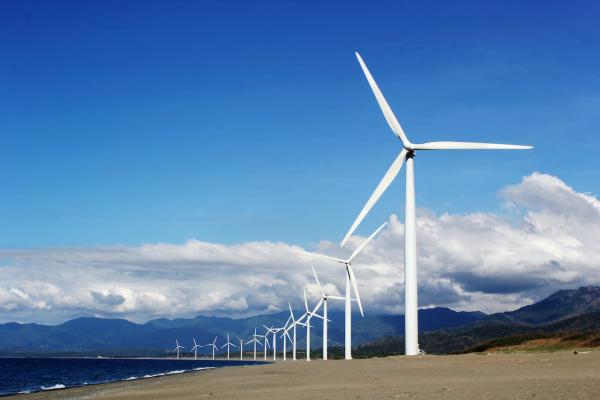Insights on Clean Energy Geopolitics from Leading U.S. Climate Scientists

In the recent publication Great Decisions 2024 from Foreign Policy Association (FPA), a piece written by Environmental Journalist Bud Ward titled "Global trade and green energy" focused on Climate Technology & Competition.
The mission of FPA is to catalyze the development of awareness, understanding, and informed opinion on U.S. foreign policy and global issues. The FPA encourages citizens to participate in the foreign policy process through its balanced nonpartisan programs and publications.
For approximately five decades, leading climate scientists worldwide have issued increasingly dire warnings about potential global dangers due to the rapid warming of the Earth's atmosphere.
Evan Pugh University Professor Richard B. Alley at Penn State and Distinguished University Professor Lonnie Thompson at The Ohio State University, both members of the National Academy of Sciences, provide insightful perspectives on the intersection of climate science and policy, particularly in the context of clean energy geopolitics.
Dr. Alley emphasizes that the scientific understanding of global warming, fundamentally attributed to fossil fuel combustion, has been robust and clear for decades with its foundational knowledge dating back to the 1800s. He notes that the scientific uncertainties surrounding climate change largely concern the extent of the negative impacts rather than the occurrence of warming itself. Alley highlights the deep entrenchment of fossil fuels within our societies, economies, and political systems built over a century. He asserts that while "scientific uncertainty" has been cited in policy discussions, the science itself remains accurate and reliable, offering a clear basis for developing sustainable energy policies that can benefit both the economy and the environment.
Dr. Thompson points to data from ice cores and glaciers as undeniable evidence of rapid climate change driven significantly by carbon-based energy use. He outlines the challenge of transitioning to carbon-free societies amidst the rapid global changes affecting all human activities. Thompson highlights the dependency of renewable technologies on rare earth elements, which are abundantly found in geopolitically sensitive regions like China and Russia. This dependency underscores the complexity of navigating international relations to pursue clean energy goals. Despite these challenges, he calls for global cooperation to address climate change, stressing the need for international policies to make energy production and consumption sustainable.
Both scientists advocate for a collaborative global approach to mitigate the impacts of climate change, leveraging scientific knowledge to inform policy and emphasizing the necessity of international cooperation in transitioning to sustainable energy systems. Their insights underline the critical need to overcome political and economic barriers to effectively address the global climate crisis.
To read more, visit Climate Technology & Competition or download the "Global trade and green energy" PDF.
